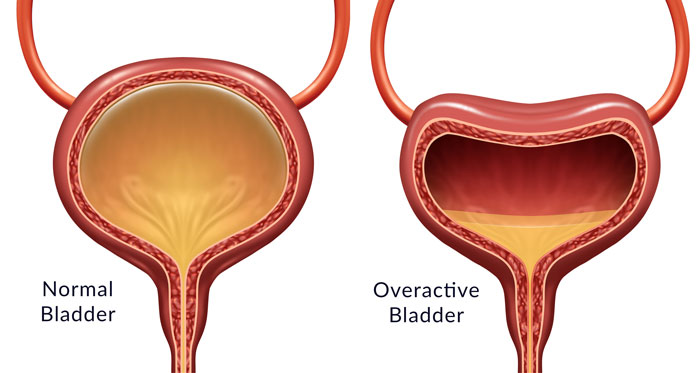If you have OAB the muscles of the Bladder start to contract involuntarily even when the amount of urine in the Bladder is low
Overactive Bladder
Overactive Bladder syndrome or OAB is a condition that causes a range of urinary symptoms. The most common symptom experienced by people who suffer from OAB includes a sudden and uncontrollable urge to urinate during the day and night-time.
A healthy bladder works by sending nerve signals to the brain when the bladder begins to fill with urine. These nerve signals delivered to the brain eventually trigger the urge for a person to urinate. If you have OAB, the muscles of the bladder start to contract involuntarily even when the amount of urine in the bladder is low. This involuntary contraction creates the urgent need to urinate.
Causes
OAB can be caused by:
Neurologic disorders such as multiple sclerosis or stroke and other conditions that may have damaged the nerves that send signals between your brain and bladder
Diabetes
Medications
Urinary tract infections
Obstructions that prevent bladder outflow including enlarged prostate and constipation
Hormone changes
Incomplete bladder emptying
A urinary tract infection
Symptoms
Symptoms that may be experienced from OAB include:
A sudden and uncontrollable urge to urinate
Urine leakage due to the sudden and uncontrollable need to urinate (Urge incontinence)
Stress incontinence – The thought of having an urgent need to urinate stresses you out to the point of losing water
Frequent urination – More than eight times within 24 hours
Waking up during the night to urinate much more than usual (Nocturia)
Treatments
Lifestyle changes including kegel exercises, weight loss, timed visits to the toilet
Medications
Catheters and use of absorbent pads
Bladder Botox® treatments
Nerve Stimulation
Surgery in severe cases

